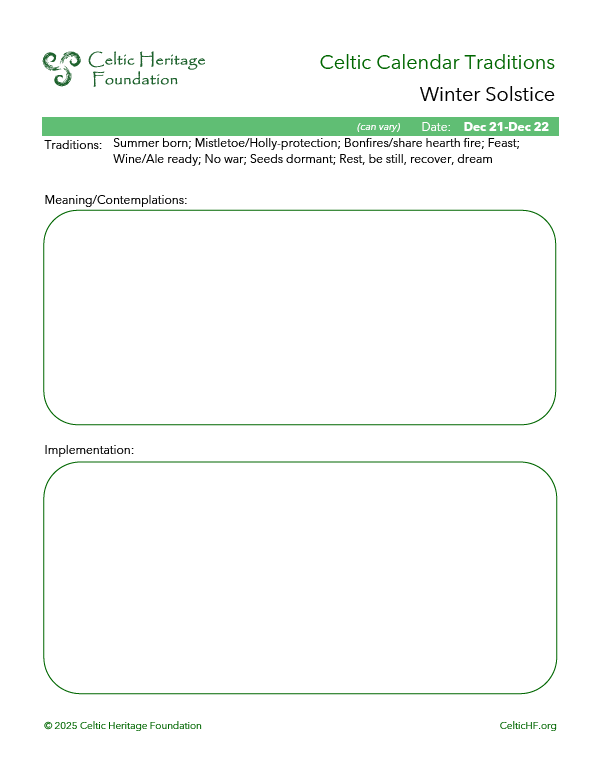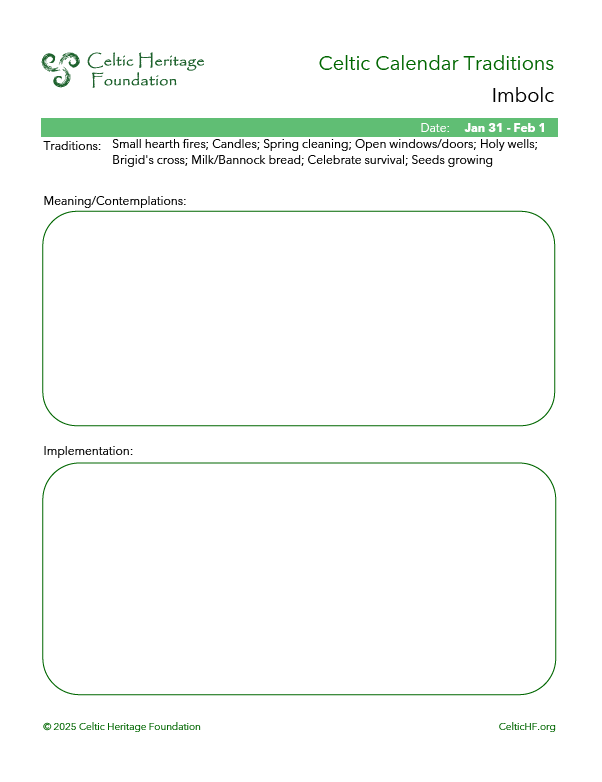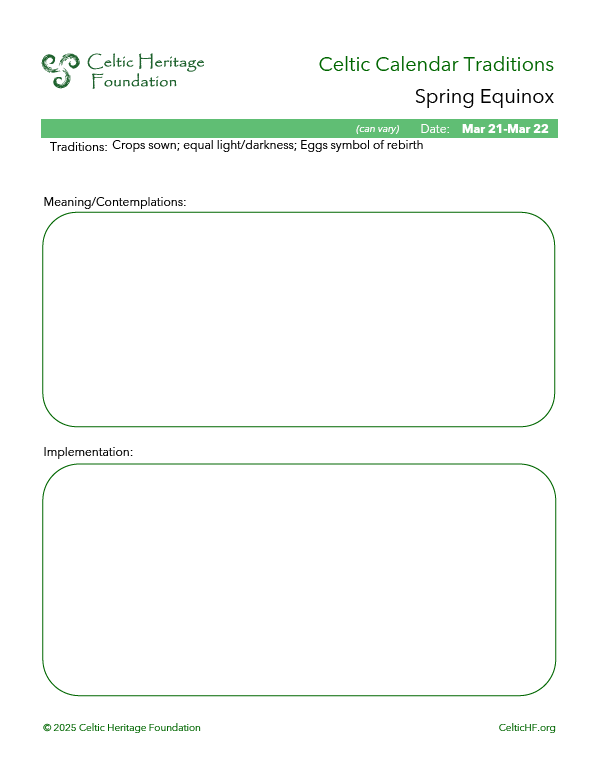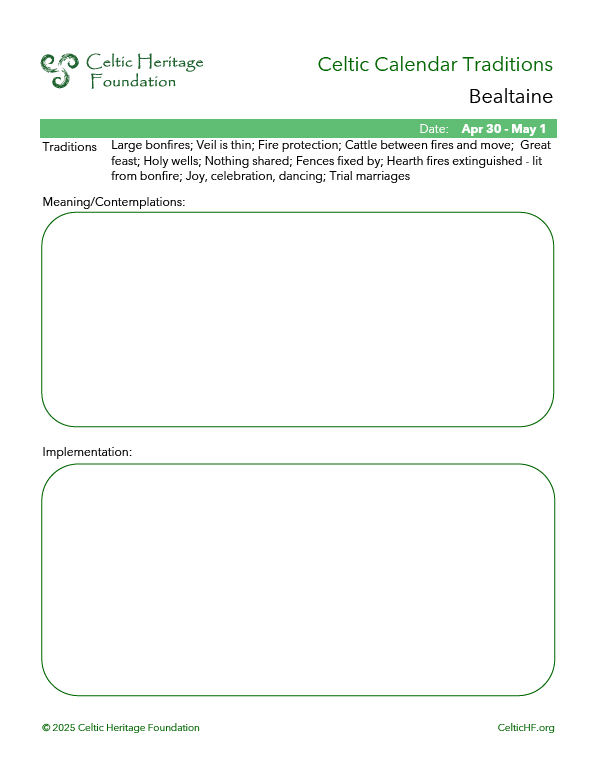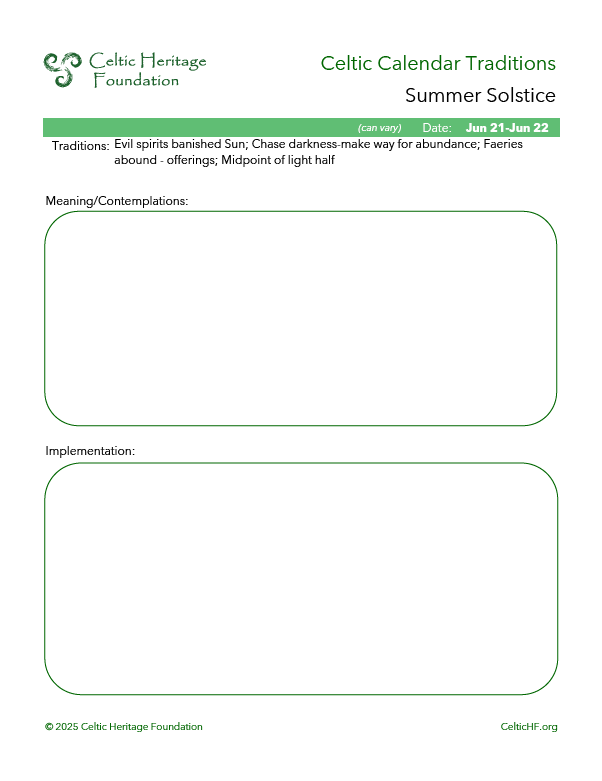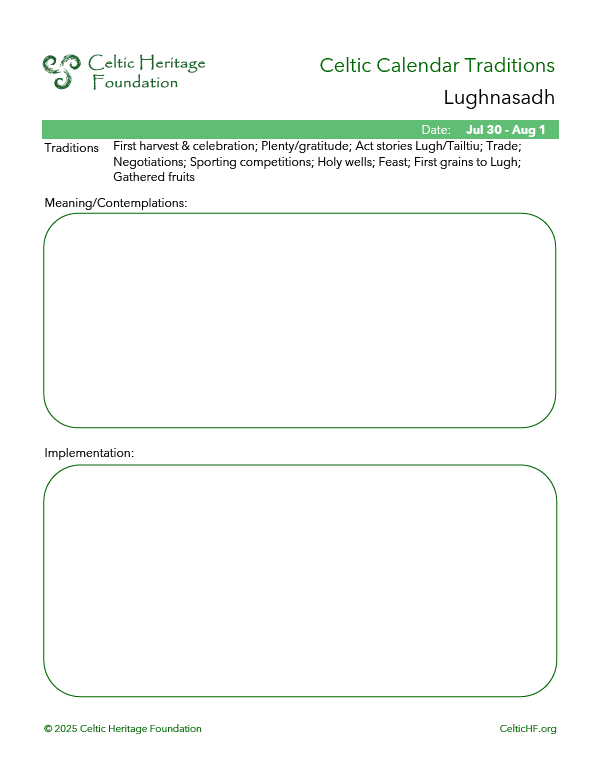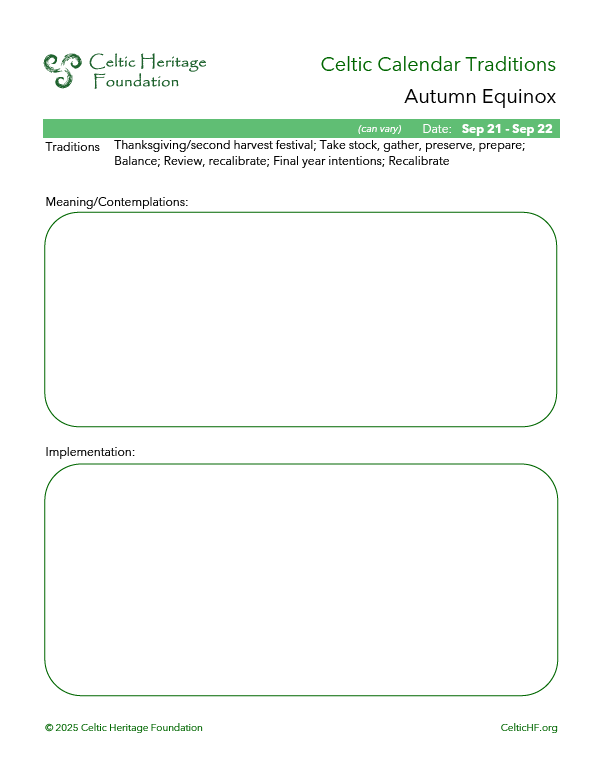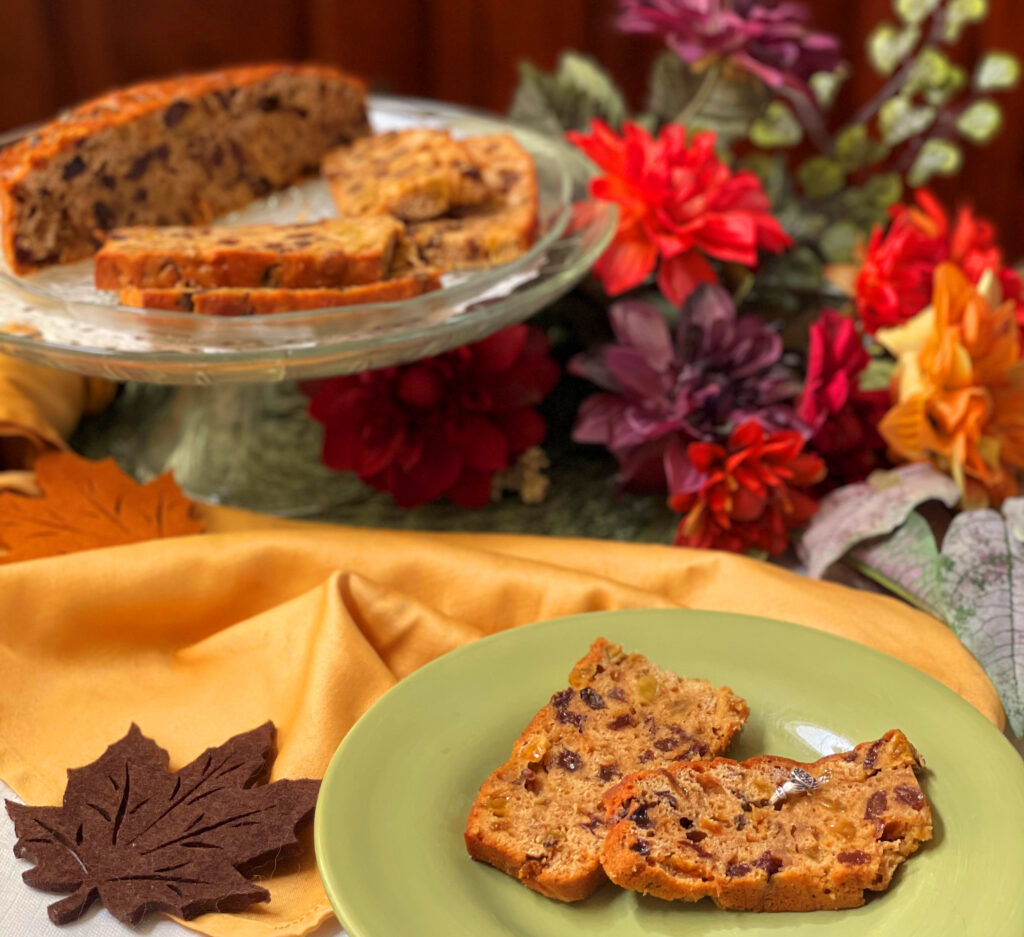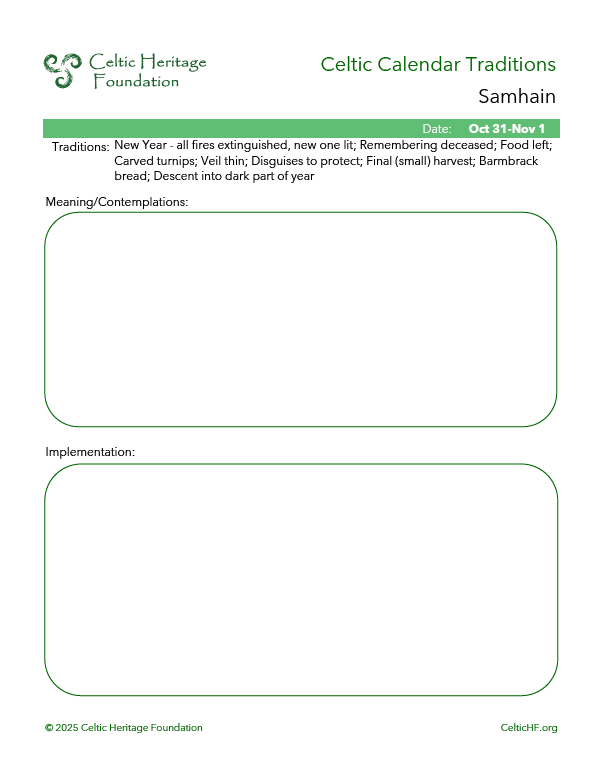Calendar
Click The Celts to return to the Celtic Page, and the logo to return to the Home page.
The Celtic Calendar
The oldest known Celtic calendar was discovered in Coligny, France. It was one large stone plate and compiled of thirteen months in accordance with the moon cycles. An additional month was added every two and half years in order to keep the months aligned with the solar calendar. The Celts divided the year into two halves, the dark and the light. Each day was measured from dusk to dusk and so was each year. The year began at the beginning of the dark half of the year, with Samhain (October 31st). The Solstices and Equinoxes were so important to the Celts and pre-Celts, they built monuments that aligned with these days and celebrated half quarters with festivals. Agriculture was a matter of life and death and the major calendar events reflect the circle of agriculture.
Imbolc
Celebrated on February 1st, Imbolc is the beginning of spring for the Gaelic speaking Celtic nations.
Ancient Wisdom
Modern Living
The Celtic calendar marks eight powerful turning points in the natural year—moments when earth, sky, and spirit align to offer us a deeper sense of time, connection, and purpose. These seasonal festivals—rooted in ancestral wisdom—still speak to us today, inviting us to continue its teachings in the modern world.
The downloadable form may help in weaving these ancient rhythms into your modern life. The form includes:
- A brief summary of the traditions of the calendar event.
- A space for contemplation
- A space for implementation
Whether celebrating in ritual, journaling quietly, or simply lighting a candle with intention, these eight festivals can become a grounding force—reminding us to live in harmony with the cycles of nature, and the cycles within ourselves.

The world is rich in diversity of culture. In the United States, there is a meeting of many cultures and the ones people came from can be forgotten over generations.
We strive to preserve Celtic heritage for Americans of Celtic descent so they may be connected to the threads of their past, present, and future.
© 2022-2025 Celtic Heritage Foundation. All Rights Reserved
contact us
info@CelticHF.org
